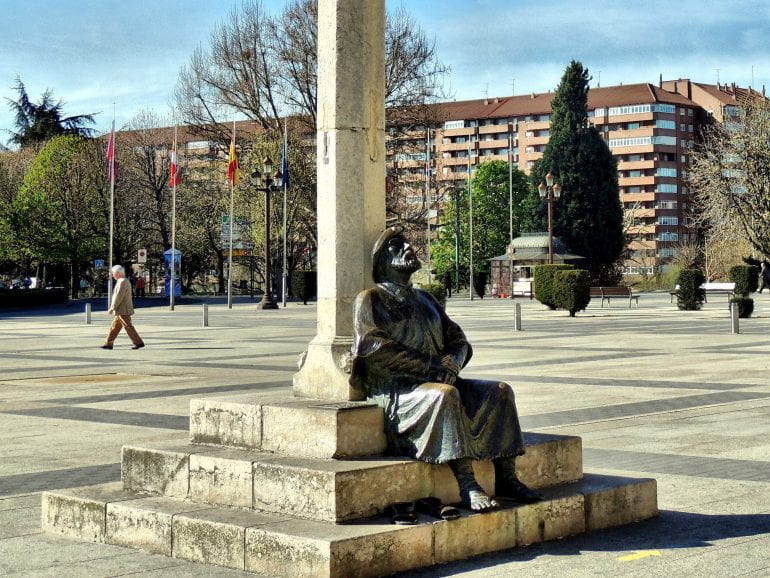By Shannon Blackler ~
“You’re my only daughter, Sofia. My blood runs entirely through you, unlike your brothers. This could be a shared journey, if you want it to be.”
Her eager heart pounded like the stomp of elephant’s feet against dry earth. She was aware how difficult it would be to move legally into the US, but she would have papers, she would be with her father, there was no reason to be afraid. After years of writing passports for others in a fluorescently-lit office space, hundreds per day from the break of dawn to mid-afternoon, Sofia would finally have her own, stamped with entry into the Land of Opportunity, where her father’s determined eyes would look over every block-lettered “Help Wanted” sign they’d pass on the street.
It was family that encouraged her to go, but she would be leaving them behind with only her empty bedroom to remember her by. Her mother began greeting her with tearful smiles after Sofia told her of her intention to leave, wringing her small hands, and cleaning more often. Her brothers said they wanted so badly to go with her and spoke jealousy of her privilege in the same breath, walking together out the front door into the sun-drenched city without bothering to ask if she wanted to take a break from packing and join them.
Sofia sat on her neatly made bed, hands in her lap, staring down at the floor where her suitcase lie open, a mess of clothing that she tore through in a fit. She felt the bonds she had built with her family straining like an elastic band about to snap. The closer it got to her departure, the more it stretched, and more pain made its home in her heart.
As the evening sun began to dip into the horizon, the sky a watercolor painting of red, orange, and a deep royal purple, Sofia opened her journal to the next blank page to write. Her fingers pinched the edge of each page, eyes wandering over words that had poured out, her handwriting uncharacteristically shaky. Her unsteady hand, jerked across the page, sharing thought after thought with each rushed letter; question marks populated the scene. Would she belong to the immigrant story in the US, being as old as she was coming over? Or would other immigrants, the same age as her now but who had come into the country in their childhood, see her as an outsider too? Would the rest of her family ever be able to join her, or would she have to reimagine herself without them, severed from those who meant the most to her?
On the day she would leave, Sofia woke up to the neighborhood rooster crowing, as it did every morning, to greet the sun. “I’ll miss that sound,” she thought, shifting in bed to get up. Her luggage was packed nearby, upright and waiting for her hand to close around it and take it away to her new home. The anxiety that had built up and traveled through her seemed to never have been an affliction at all. She quietly thanked God for the strength He gave her to remain true to her aspirations and the peace he gifted her in the morning. America was only a short flight away.
She met with her mother in the living room. The sense of joviality and brightness that usually filled the house was replaced with a sense of sweet melancholy. Sofia, throat already tight, spread her arms to welcome her mother into a hug.
“It hurts me to see you leave, but you’re an adult, and you know what is good for you to do,” her mother shared through abundant tears. It seemed that more and more came, no matter how many times she wiped at her eyes.
“I’m so happy to be going, but I feel terrible that you can’t come with us,” she told her mom, catching her own hot tears and casting them away.
“Even if you don’t come back for years, I’ll know you have a better life, and I’ll stay happy for you. Don’t feel upset about leaving. This is a great opportunity. Your father is very kind to bring you with him.”
Sofia closed her tear-glazed eyes and tightened her hold, afraid that this embrace might mark the last time they would see each other.
Their flight to Manhattan was scheduled in the evening. She and her father took a taxi to the airport an hour earlier than necessary, so they sat in the waiting area. To Sofia, the conversational noise around them was a thankful distraction. There was a group of men chatting in a circle; they all looked very calm, like they had been through the process enough times to numb them to it. “It’s not normal if someone isn’t afraid,” she thought to herself.
Her father noticed the nervousness in her face; her worried lip, the way her face paled when he looked back at her, her dark eyes full of uncertainty. “You don’t have to be afraid,” he told her quietly, “I’m here with you, so don’t be scared.” She leaned into his shoulder and closed her eyes, praying silently to God that she wouldn’t die before reaching America.
Her legs didn’t want to cooperate when she was called to board, but she and her father took their luggage and found a spot on line. The sight of the plane caused Sofia’s pulse to skyrocket; her tongue dried, and a nervous sweat beaded at her skin. She had never been on one before, having only seen them from safely on the ground, neck craned skyward, wondering where the people on board were going. She never anticipated that she would one day be in one, leaving the Dominican Republic.
Her father seemed confident and she mimicked what he did to try to appear like a seasoned flier. He took the window seat, probably for her benefit. If her eyes landed on the window, she looked away with a shuddering breath.
“You made it to the plane,” her father said before they took off into the air, “now you can make it through the rest of the trip.”
As the flight attendant explained the safety measures, Sofia’s mind wandered to Santiago. She would have to make a new family out of just herself and her father in Manhattan. The thought that she was abandoning her country and the rest of her family haunted her mind, and the words on any magazine or program that her father offered her seemed illegible to her.
Sofia couldn’t hold onto the armrests tight enough when the plane rolled down the runway, gathering momentum. A scream built in her throat, her body desperately wanting to get rid of the energy that had built heavily inside her, but she knew better than to appear like a child to those around her. The other passengers had quiet conversations or relaxed into their seats; it seemed she was the only one petrified about this experience. Sofia worried that if she survived the flight, she would be unable to force herself on another plane back to the Dominican Republic to visit her family.
The journey took around four hours, a straight shot from D.R. to the New York. Time allowed her to relax somewhat, but there remained a constant buzz in her veins, as though she had downed three espressos in rapid succession. Her father, turning to face her after a short while, worked to talk her down from the anxious place with stories of his childhood as well as her own. He recounted happy memories that made her smile and laugh, like the first time she wrote her parents a story about a girl and her favorite balloon. Sofia reminded herself to compose a new journal entry when they settled into their new home in Manhattan, one of nostalgic happiness and relief.
“Look at where you are now from those days,” her father laughed as the night sky stretched across the window beside him.
“I’ve grown up,” she said, thinking on that statement and just what it meant. “Even though it took me longer than other people, I’m going to the U.S. Thank you for bringing me with you.”
His lighthearted expression turned serious. “It doesn’t matter that it took you until now. All that matters is that you’re going. Many people live and die without ever going to the U.S. and you won’t be one of them.”
Sofia, with legs freed from the ball and chain that held her to her seat, felt she saw God when she unbuckled herself and exited the plane. The ordeal was over; her feet greeted American land. The winter air of the night chilled her skin as the sight of Santiago beamed in her mind like a sudden camera flash.
America. New York. Manhattan. Home.
The wide, busy streets of Manhattan, New York. The stands selling things that reminded her of street venders in D.R. The sun that still felt warm on her back, but not as warm as Santiago’s. The oppressive sound of factory machines in her ears rather than the gentle scratch of a pencil on a passport. The stairwell in her apartment where she met her husband, who nearly tripped on a step because his gaze was intensely focused on her as she came into the hallway. The family she would go on to create with him.
The proud smile on her face as she boarded a plane back to D.R., seven years later, to see her mother, whose arms stretched and encircled her in a welcoming hug that she would never forget.

